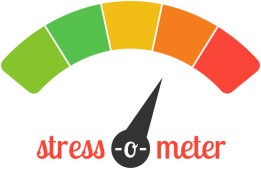This time of year can be challenging for all of us—but especially for new faculty. The balance of scholarship, teaching, service, and life outside campus can be difficult to maintain even if you have been at it for a long time, but take a minute to recall the time when it was all new. In Faculty Development we have a formal mentoring program run by Susan Wiesinger that provides assigned mentors for new tenure-track faculty and a specialized workshop series for lecturer faculty. However, we acknowledge that the most important mentoring work is almost always informal and local. I want to highlight a few realities of these relationships that I hope you will keep in mind as this semester closes and we look toward Fall 2017.
- Lecturer faculty need mentoring too. Lecturers have a dramatic impact on student success as they are often the people called on to teach first-year students and serve in other critical roles. Prioritizing student success means equipping lecturers with research, resources, and drawing on their expertise. It also means engaging them in conversation on effective teaching, research opportunities, and helping them navigate the university. This is a job for all us, regardless of classification. Talk to new lecturer colleagues about professional development like the CELT conference and how to access resources for travel.
- Minority faculty face unique challenges, but you do not have to share the same life experience to be helpful. A recent Chronicle article highlighted key strategies for mentoring new minority scholars. I encourage you to read the whole article, but I want to highlight the first piece of advice “Practice cultural humility” and in doing so “demonstrate empathy for the professor’s experience as a faculty member of color in the institution.” In institutions like ours with strong organization culture we are often too quick to bring newcomers up to speed with “how things are done here” without being attentive to other strategies or experiences. Mentoring is mainly learning and listening.
- Make a plan and get out there. Writing “be a good mentor” on a post-it note may be a reminder for you, but it is not a plan. Talk with your colleagues and your department/college leadership about what is being done and what is possible, but get started. Make a point to drop by a new colleagues office to ask how things are going, make a trip to a different floor or building to talk to a new lecturer that you have not met, but take the first step in outreaching to your new colleagues.
I am advising this now in hopes of helping our colleagues at the end of the term, but also to compel you to think about how next year could be even better with new faces, new ideas, and new mentoring relationships.
The call for the 23rd annual CELT conference is live! Submit an abstract today to change the world tomorrow—or maybe in October.
Got feedback on this tip? Got an idea for a tip? Send it along. Check out our new and improved wordpress site here.
Don’t forget to subscribe to the Caffeinated Cats podcast! Our newest episode is out now! Mary, Tracy, and I are joined by student guest Martin Morales to discuss housing and food insecurity at CSU, Chico. Link to it on soundcloud, itunes, overcast, or follow the podcast on facebook.



 In lieu of a traditional Tuesday Teaching Tip, we want to direct your attention to the
In lieu of a traditional Tuesday Teaching Tip, we want to direct your attention to the 
 tress seems everywhere this time of the semester. The academic year is close to an end which means student concerns about grades and graduation, too many meetings crammed into the day, celebrations that sometimes feel like obligations, and this year we are all making sense of the strike and what it might mean for ourselves and our students. Speaking of students, the stress of the end of the year can be even greater for them as they deal with a host of transitions many of us moved on from years ago.
tress seems everywhere this time of the semester. The academic year is close to an end which means student concerns about grades and graduation, too many meetings crammed into the day, celebrations that sometimes feel like obligations, and this year we are all making sense of the strike and what it might mean for ourselves and our students. Speaking of students, the stress of the end of the year can be even greater for them as they deal with a host of transitions many of us moved on from years ago. nts often struggle to connect course content outside the classroom. This can lead to uncomfortable classroom moments with questions like “why would I ever need to know this?” and “who cares about this?” CSU, Chico is a national leader at answering this question with civic engagement, our newest strategic priority.
nts often struggle to connect course content outside the classroom. This can lead to uncomfortable classroom moments with questions like “why would I ever need to know this?” and “who cares about this?” CSU, Chico is a national leader at answering this question with civic engagement, our newest strategic priority.